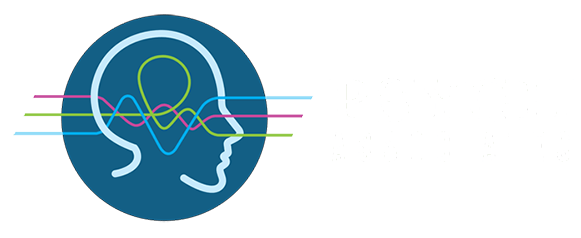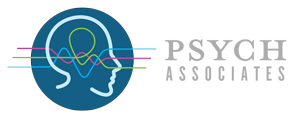
Adolescent Depression and How Therapy Can Help
It’s no secret that the past year has been tough on everyone—adults and children alike. With the added stressors of a pandemic, many teens are experiencing increased levels of anxiety and depression. In fact, according to the National Institute of Mental Health, 4.1 million adolescents in the United States had at least one major depressive episode in 2020. That number rose by 260,000 in 2021.
While it may be tempting to just tell your teen to “snap out of it,” depression is a real medical condition that requires treatment. Fortunately, therapy has been shown to be an effective means of treating depression. Here’s what you need to know about adolescent depression and how therapy can help.
What Is Adolescent Depression?
Depression is more than just feeling sad or blue for a few days. It’s a persistent feeling of sadness and/or loss of interest in activities that lasts for two weeks or longer. Depression can also cause physical symptoms like fatigue, headaches, and stomachaches.
For teens, depression can manifest itself in different ways. Some common signs include:
- withdrawing from friends and activities they once enjoyed
changes in eating or sleeping habits
irritability or angry outbursts
hopelessness or feelings of worthlessness
drastic changes in school performance
self-harm or thoughts of suicide
If your teen is exhibiting any of these signs, it’s important to seek professional help. Untreated depression can lead to serious consequences, such as poor school performance, substance abuse, and even suicide. In fact, suicide is the second leading cause of death for adolescents ages 15-19.
Depression is a treatable condition, and therapy is an effective treatment option. Through therapy, your teen will learn how to cope with their depressed moods and develop healthy coping mechanisms. They’ll also learn how to manage their thoughts and behaviors in a more positive way. One of the best therapies for treating adolescent depression is cognitive behavioral therapy (CBT). CBT focuses on identifying negative thought patterns and replacing them with more positive ones. Studies have shown that CBT is an effective treatment for adolescent depression, with patients seeing a significant reduction in symptoms after just 12 weeks of treatment.
Natural Ways To Ease Depression Symptoms
While medication should always be prescribed by a physician, there are some natural ways you can help ease your teen’s depression symptoms at home:
- Get Them Moving: Exercise releases endorphins—the body’s “feel good” chemicals—which can help improve mood and reduce stress levels
- Make Sure They’re Getting Enough Sleep: Adolescents need 9-10 hours of sleep per night but often don’t get enough due to late bedtimes or early school start times
- Encourage Healthy Eating Habits: Eating nutritious foods helps the body function at its best
- Limit Screen Time: Too much screen time can contribute to feelings of isolation and loneliness
- Promote Positive Social Interactions: Spending time with friends and family can help reduce stress levels and improve mood
If you think your teen may be depressed, don’t wait to get help. The sooner they begin treatment, the better their chances are for making a full recovery. Parents play a vital role in their child’s mental health so please do not hesitate to reach out if you have any concerns.”
Our counselors know how to help.
Contact us if you want to help your teen solve the issue of their depression. Our highly skilled and trained therapists will listen and help you understand what your teen needs and teach them the skills to identify what they are feeling, express their needs appropriately, and learn to use how they feel to better manage themselves and the world around them.
If you are ready to learn how we can help your teen, call Psych Associates at 417-414-0333 or schedule your appointment online.
Teen depression therapy is a counseling service aimed at helping adolescents (typically ages 13-18) in Springfield, MO who are experiencing persistent sadness, loss of interest, irritability, or other symptoms of depression. Therapy helps teens develop healthy coping strategies, challenge negative thought patterns, rebuild motivation, improve sleep, and restore engagement in school and social life.
Some common signs include withdrawing from friends/activities, changes in eating or sleeping habits, increased irritability or anger outbursts, low motivation or declining grades, feelings of hopelessness or worthlessness, physical symptoms like headaches or stomachaches, and thoughts of self-harm or suicide. If these symptoms last for two weeks or more, professional help is recommended.
At Psych Associates, evidence-based approaches are used, such as Cognitive Behavioral Therapy (CBT), which focuses on identifying and changing negative thoughts and behaviors. Therapists may also incorporate emotion regulation, coping skill training, behavioral activation (helping teens engage in rewarding activities), and family involvement when appropriate.
Therapy duration depends on the severity of depression and the teen’s level of engagement. Many teens in Springfield begin seeing noticeable improvements—such as better mood, improved sleep, or renewed interest in activities—within several weeks of consistent weekly sessions. More comprehensive symptom relief often requires several months.
Yes. Psych Associates offers teletherapy options, allowing adolescents and their families in Springfield to access therapy online. This can help reduce barriers like travel time or scheduling conflicts while still providing effective, professional treatment.


